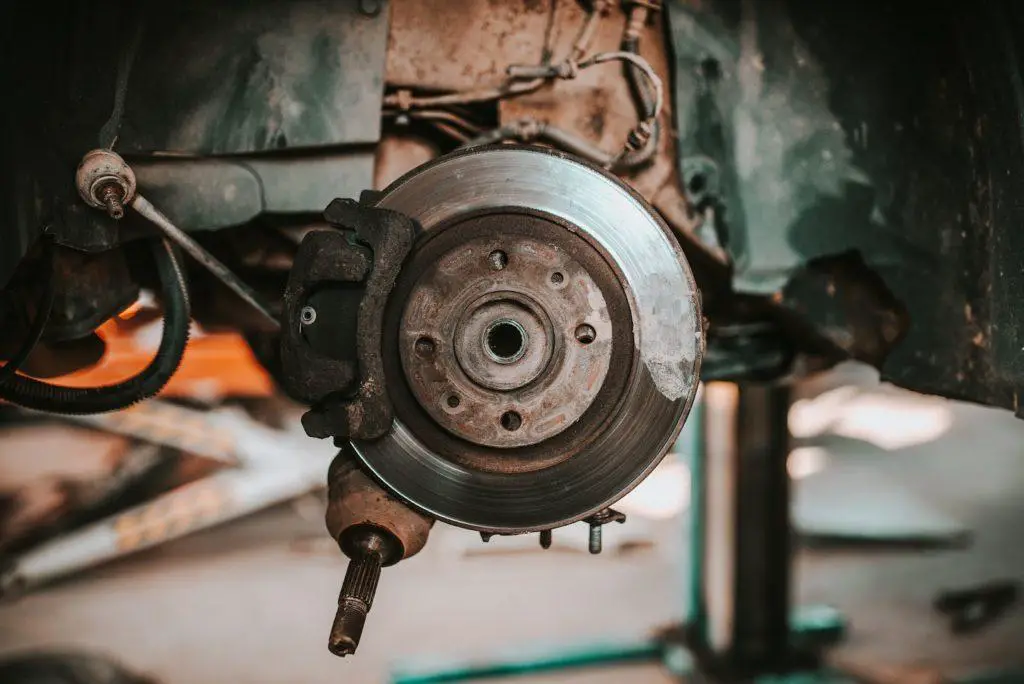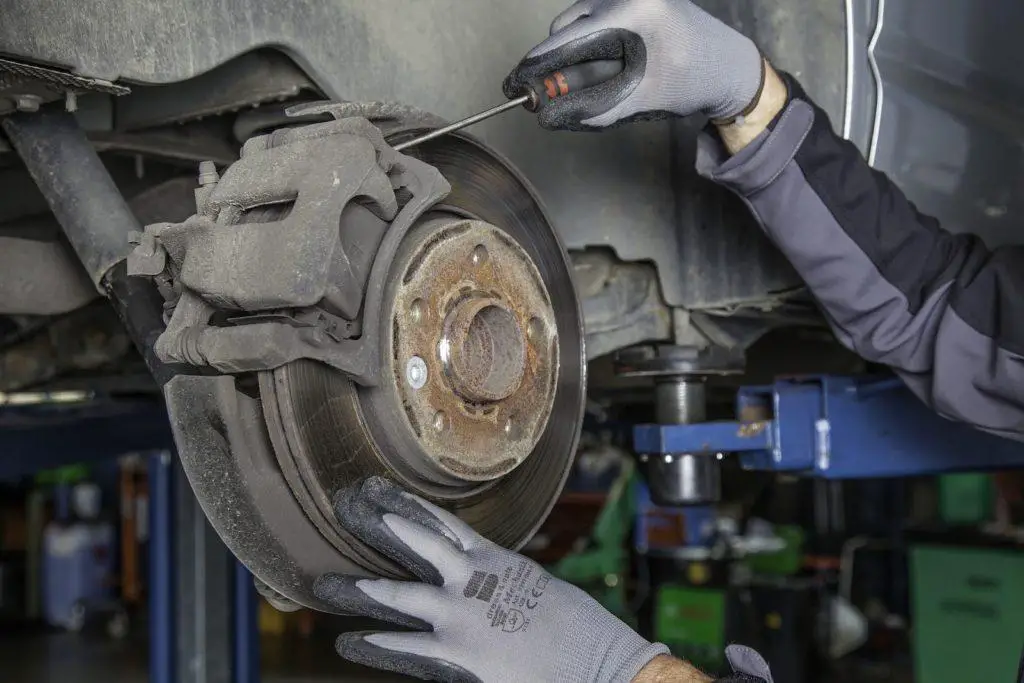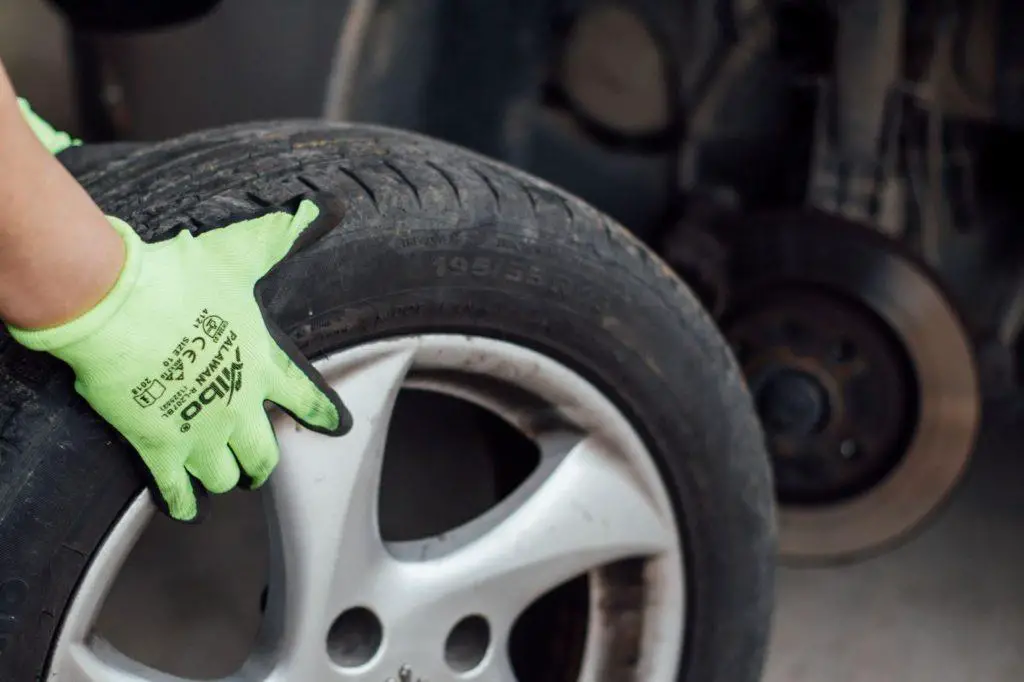The brakes on your car help you stop in time and avoid accidents; they are a lifesaver. With time, the brakes can suffer from wear and tear and might produce a squealing sound. However, it’s not always the wear and tear that causes the squeaking sound.
There are multiple reasons why your brakes are squealing, such as damaged hardware, lack of lubrication, or a new car. It might be tempting to ignore these noises, but you shouldn’t because they are a cause for concern.
Ever wondered why your brakes are squeaking? If you are dealing with this issue, continue reading to know why it happens and how to fix squeaky brakes.
Jump To
- 1 What Is Brake Squeak?
- 2 What Causes Squeaky Brakes?
- 3 Ways To Fix Squeaky Brakes
- 3.1 Replace Your Brake Pads and Rotors
- 3.2 Repeat the Break-In Process
- 3.3 Move the Backing Plate
- 3.4 Apply Brake Grease to Contact Points
- 3.5 Replace the Brake Hardware
- 3.6 Install Shims To Avoid the Squeaking Noise
- 3.7 Consult With Experts
- 3.8 Some Brakes Are Always Loud
- 3.9 Bottom Line on how to fix squeaky brakes
What Is Brake Squeak?
Brake squealing, to put it simply, is caused by vibration. When you press the brake pedal, the calipers push the brake pads against the rotors. The car slows down as a result of friction.
Limited space between the brake pads and the rotors results in high pressure and friction. This means that they might generate noise if they are put under more stress.
This can happen with brand-new brakes or brakes that have been in use for some time, and the sound doesn’t always mean that you should replace your brakes. Occasionally, brake noise might simply be bothersome, but it can also serve as a warning sign for more significant issues.

Flickr Image by Nenad Stojkovic
What Causes Squeaky Brakes?
You must first analyze the root of the issue to figure out how to fix loud, screeching brakes. There are a variety of reasons why brakes can create noise.
While it may be very frustrating, it is not always a sign that your braking system needs to be completely changed. We advise having your brakes inspected by a specialist if you hear metal-on-metal grinding.
Below are some reasons why you have squealing brakes.
Moisture or Dirt
If your brakes make noise sometimes, it might be because of moisture or dirt stuck between the pad and rotor surface.
If you hear a screeching sound, you may have picked up a rock or piece of trash from the road. Often, all you need to do is clean the brake pad and rotor surface.
Loosened Hardware
The components of the brake system include pads, brake rotors, calipers, bolts, clips, and hoses. These parts may shake and make a squeaky sound when they become loose.
Rust Accumulation
Rust accumulation, which is typically brought on by water on the rotors, produces a squealing sound. A small film of rust develops on the rotor surface if moisture builds up there.
If you park your car outside, your brakes can screech when you start the car in the morning.
The brake pads scrape the rust off as you drive away, resulting in a high-pitched screech. The noise should stop once the rust has been removed.
Thin Brake Pad
Another cause is worn brake pads. Your pads have probably worn down if you hear a loud screech or grind. It is essential to replace them at this time. If you don’t, the rotors can crack or deform in addition to being ground down by the pads.
To prevent more harm to the rotors, it is best to change the pads as soon as possible.
Damaged Pad Clips
Most current brake pads come with pad clips in the packaging. Pads are fastened to the caliper via pad clips, which reduce any vibrations or movements of the pad. Sadly, when people adjust their brakes at home, the new clips that come with the pads are not usually used.
Squealing noises can be heard when the brakes are applied because the worn-out spring-loaded brake gear has lost tension. It is crucial to replace pad clips every time you change your brakes because they are only designed to last as long as the brake pads.
Ways To Fix Squeaky Brakes
Even though screeching brakes can be inconvenient, they are actually necessary for your protection. If not for the noises, you wouldn’t be aware that your car’s brakes require urgent maintenance.
Failure to pay attention to early noises might result in car brake failure and worn-out pads and rotors.
You must determine a solution to this problem. You can fix it yourself in some circumstances, but you may also need to consult an automobile expert.
Below are some ways you can fix the noisy brakes.

https://pixabay.com/photos/brake-disc-workshop-automobile-1749633/
Replace Your Brake Pads and Rotors
It is necessary to replace your brake pads if they are glazed, dirty, or have just worn out over time. The break-in procedure should be followed whenever you replace your brakes.
Getting new disc rotors, pads, and hardware is always advised in addition to replacing the rotors. It’s crucial to have your old rotors machined and resurfaced if you plan to reuse them. The first few times you use new brake pads, they can screech.
However, with use, the sound should disappear fast. The break-in procedure should be followed whenever you replace your brakes.
Repeat the Break-In Process
For optimal performance, it is crucial to break in new brake pads and rotors immediately after installation. Check your brakes and hardware both before and after the break-in process.
Move the Backing Plate
The brake pad backing plate can be moved by attaching it to the piston or caliper housing, which greatly increases the backing plate’s bulk. As a result, the vibration frequency will typically be shifted out of the squeaking range.
Apply Brake Grease to Contact Points
Poorly lubricated calipers are one of the most frequent causes of brake grinding. You must understand how to remove the brake pads from this component to lubricate the contact points.
Put on disposable gloves to lubricate the contact points after removing the brake pads from the calipers.
These contact points can be found on the brake pad’s underside and all around the caliper carrier. Never apply brake grease or oil to the surface of a brake pad or a rotor, and make sure you clean the parts properly first.
The parts come in a few different varieties.
While a brake drum is joined to the wheel’s interior with drum brakes, a brake rotor is directly attached to the wheel with disc brakes. To determine the sort of brakes you have and how to apply the lubricant, consult your owner’s manual.
Sanding down the brake pads and using an oil-free cleaner to keep your rims or rotors clean will also help to lessen brake squeals. To keep disc brakes clean and clear of contaminants, you can purchase specialized cleaners; however, if the disc pads have been contaminated, you will need to remove them entirely to sand them down.
Replace the Brake Hardware
Noise can be produced by loose hardware. Examine the slide pins and pad clips. Anything that is damaged or cracked should be replaced. Remember to switch out your hardware each time you replace your brake pads.
Install Shims To Avoid the Squeaking Noise
Shims are parts used in brake pads that fit between the rotors and pads and reduce friction. Shims maintain the alignment of the rotors and pads in every vehicle. When functioning properly, there should be little to no noise; however, if you notice a squeaking or grinding noise, it may be best to examine your shims.
The shims should be replaced if they are worn out. You can purchase anti-squeal shims made of metal, rubber, or Teflon. This additional layer will dampen any vibrations and maintain a calm ride for your car.
Consult With Experts
Finally, you should be able to fix squeaky brakes using the above maintenance advice. Remember that sometimes it is just a matter of the material your brake pads are made of.
However, if you perform all necessary brake maintenance and still have brake squeaking, you should seek additional assistance from a qualified mechanic. Visit one of the shops in your neighborhood if you need assistance to finish the task.

Some Brakes Are Always Loud
Your brakes should be rather silent when used normally for most passenger cars. However, there are some situations where using noisy brakes is unavoidable. These typically apply to high-performance cars with powerful braking systems.
These braking systems’ naturally noisy components include the rotor and pad materials, especially when they’re cold. These brakes offer greater resilience for prolonged periods of intense use.
Bottom Line on how to fix squeaky brakes
It’s not always dangerous when brakes screech. The noise may occasionally result from the weather changing and not necessarily indicate something is wrong.
However, a persistent squeaking sound coming from your brake components may be an immediate warning that your car is affected by a more significant issue.
So take some time to investigate the problem if your brakes are screeching, creaking, or grinding. You have three choices if your brakes are beyond repair or if the noise results from worn-out shims, inadequately maintained calipers, or both.
- Get a brake job
- Install anti-squeal shims, or
- Lubricate the contact points
You should be able to get rid of that annoying noise using the methods mentioned above, but if all else fails, bring your bike into your neighborhood bike shop and ask them to fix the squeal.

1 thought on “How To Fix Squeaky Brakes”
Comments are closed.